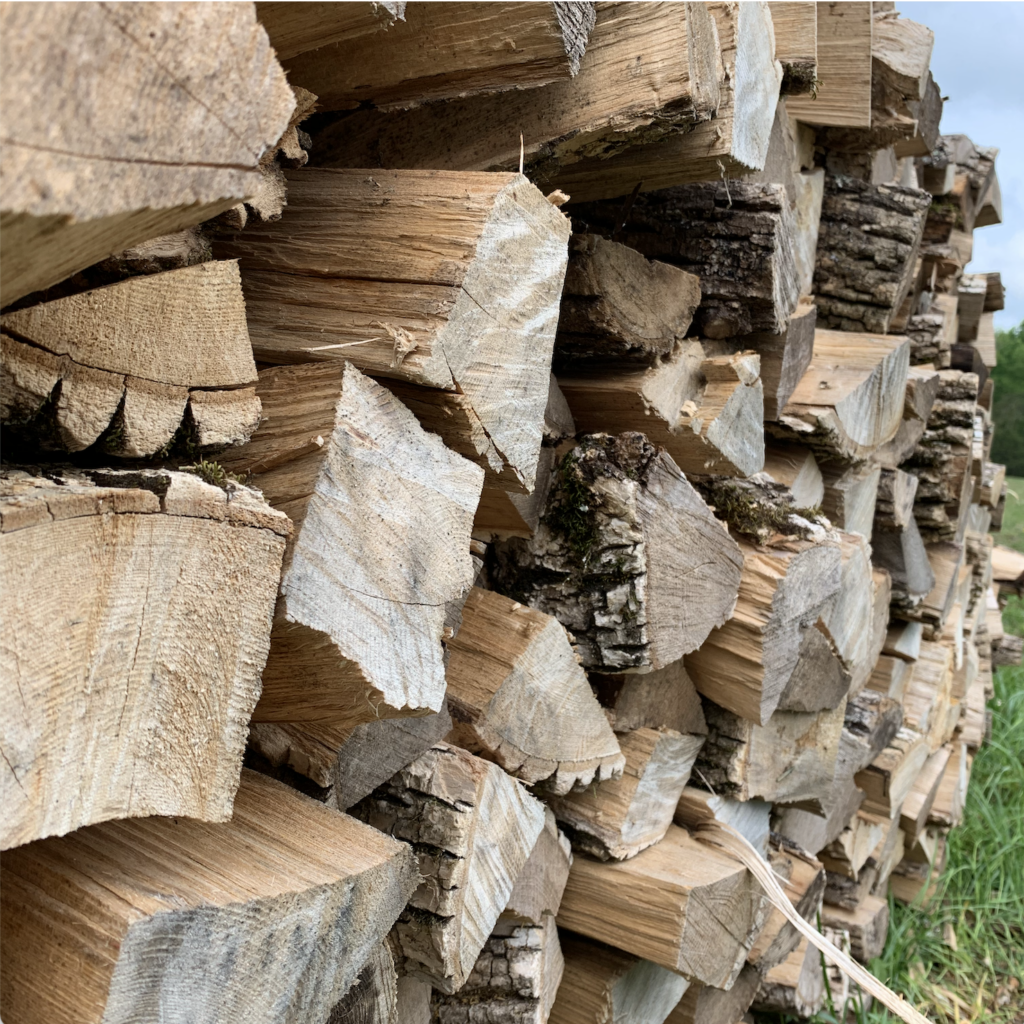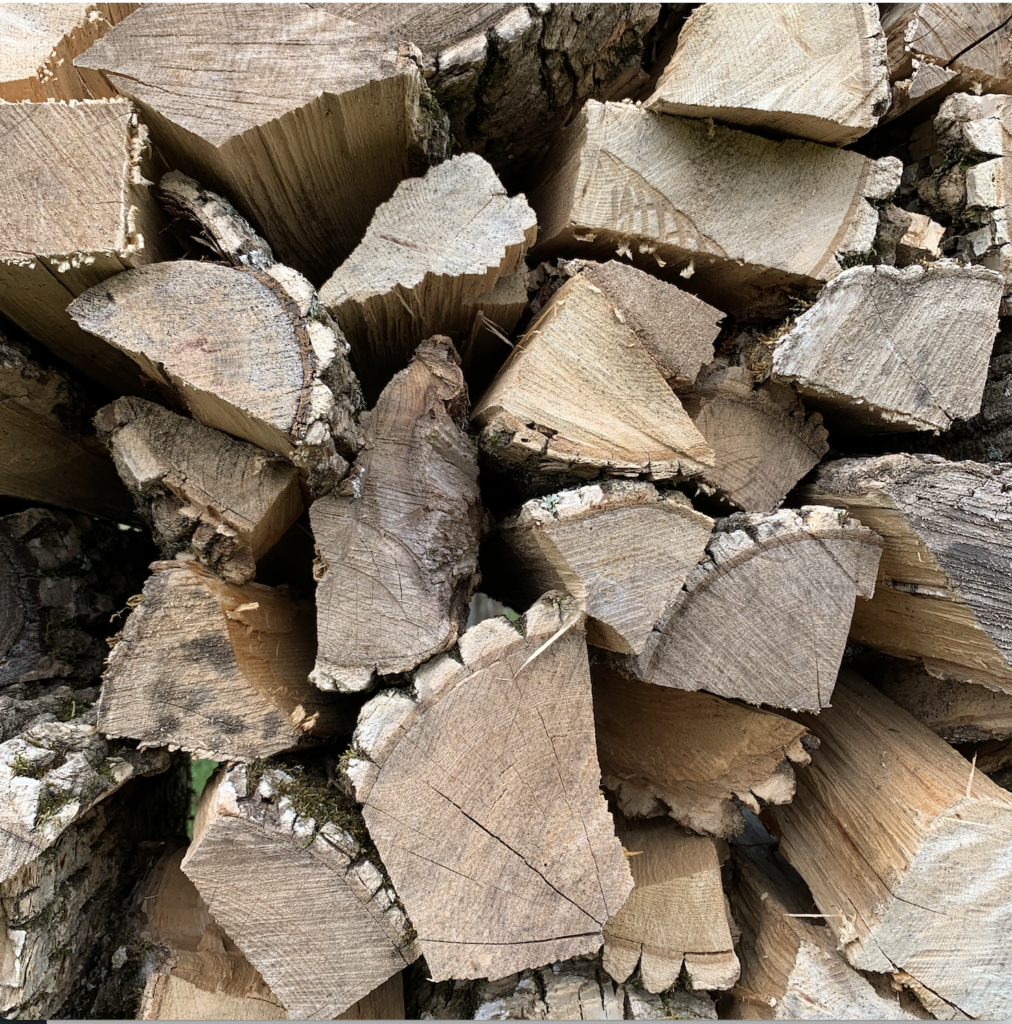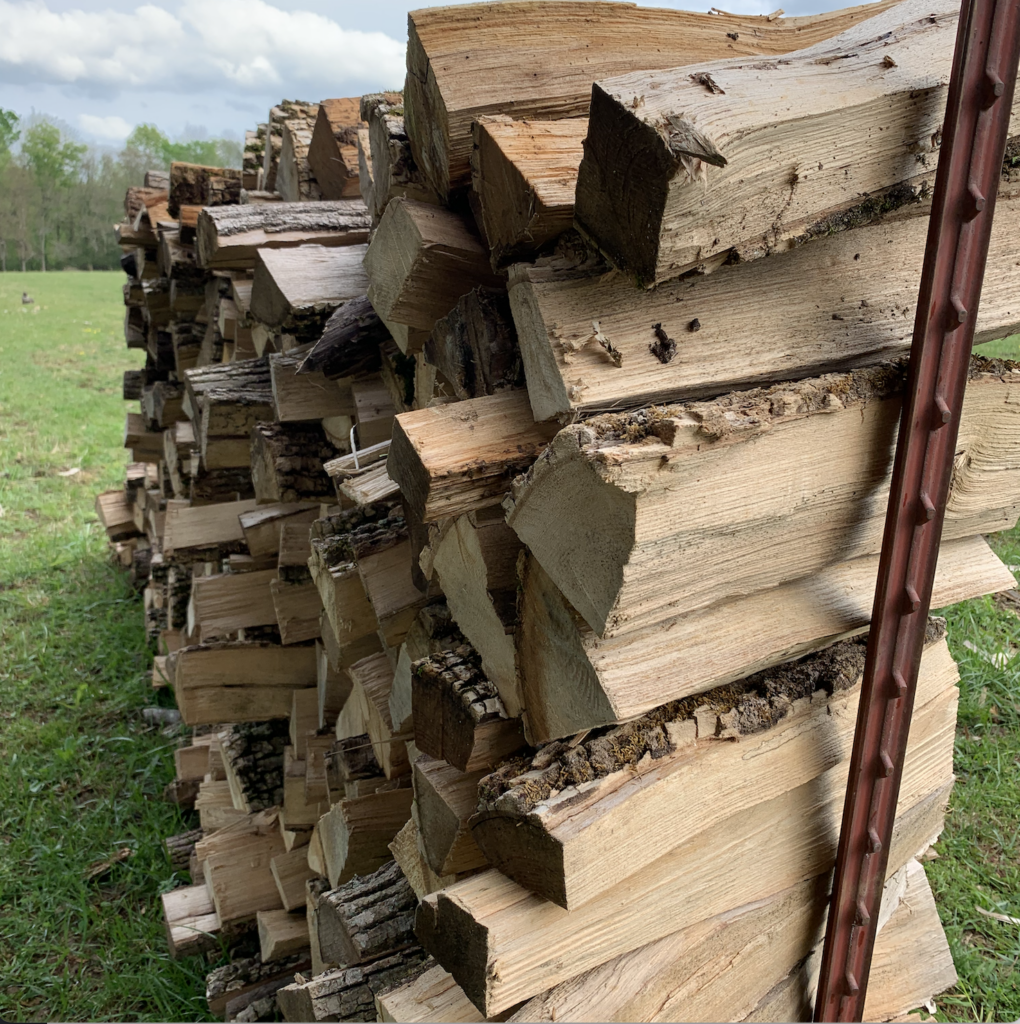This piece was originally written as part of a larger poetry and prose project that explored the author’s relationship with his family’s farm in Tennessee. Over a month-long span, he reflected daily on the lessons that the place and its people have taught him. The piece has been adapted for publication here.

Two Decembers ago, we cut up a few trees that fell during a storm. Uncle Jody and Daddy ran the saws, and I toted chunks of hickory, cedar, and ash to a two-wheeled trailer. It took several hours over several days, but we hauled eight or ten loads out of the woods and piled them near the fence behind the barn.
Over the next week, we split some of what we’d cut. I lifted heavy pieces and waddled to the splitter. Mindful of my fingers, I eased them onto the frame. Daddy found the grain, shifted the wood, and then pulled a hydraulic lever, artfully sending a wedge into each piece and busting it open. In his eighties, Uncle Jody brought smaller pieces over or told us to get out of the way so he could run the splitter himself. At times, I was busy with the “inside work” of answering emails and taking phone calls, so they worked as a two-man team. Occasionally, I went to the woodpile alone, carrying a maul to split the old-fashioned way. Sweating under an insulated flannel shirt and a ballcap, I swung for hours as the sky darkened. Our cows watched through the fence as sharpened metal met wood.
We three Lambs, each of a different generation, busted a few ricks, and then I had to leave. Winter break was over. I went back to New Haven and graduate school, back to longing for the farm instead of living there. But the work continued in my absence. Soon, big piles had been whittled to nothing and fresh-split wood sat neatly between fence posts. Mama joined to help, advertising the fallen trees over a thirty-mile radius. She and Daddy offered our firewood for a reasonable price, a far cry from what people in Franklin and Spring Hill were asking. Plus, they gave folks a free bundle of cedar to use as kindling, so they received a bunch of calls and made as many deliveries. By the end of February, they had earned a little extra money and gotten rid of the wood, save for a half-rick of cedar, a full rick of ash, and a smattering of “junk wood” too ugly to sell.
March arrived, the weather warmed, and the calls for firewood stopped. There was no need to buy wood that wouldn’t burn until November. Mama and Daddy left the cedar, ash, and junk stacked neatly next to the fence row. They would try again the next winter—call it “seasoned wood”—or burn some of it themselves in the fire pit at home.

A month after my parents called it quits on selling firewood, I came back home to the farm to weather a global pandemic. With sickness and suffering on my mind, I glanced out the kitchen window and saw the leftover stacks. Like the world around us, they too had crumbled into chaos. Hard winds, heavy rains, and scratching cows had knocked neat stacks to the ground. For some reason, this woody mess beckoned.
I grabbed my gloves, stepped out the door, and walked to the wood. I threw aside jumbled pieces, straightened what had stayed stacked, and started returning what had fallen. With purpose, I moved from pile to pile. Amidst uncertainty, it felt good to work, to restore a little order. To actually try in trying times—even though Daddy warned that the cows would knock the wood over again soon.
He was right, as he often is. Rubbing heads and shoulders against cedar and hickory, calves and cows scattered the stacks. My work was wasted. I felt annoyed, even angry. But this frustration slowly faded. A few days later, I went back to the wood.

Stacks fall. Good work gets undone. Chaos and cattle strike again.
In these moments, frustration is justified. But so is hope. When destruction descends and despair looms, we can slip on gloves and walk to messy piles—wherever and whatever they may be. In service to others and ourselves, we can stack and, if needed, stack again.
Together, we can work for a better world: one piece, one pile, one place at a time.